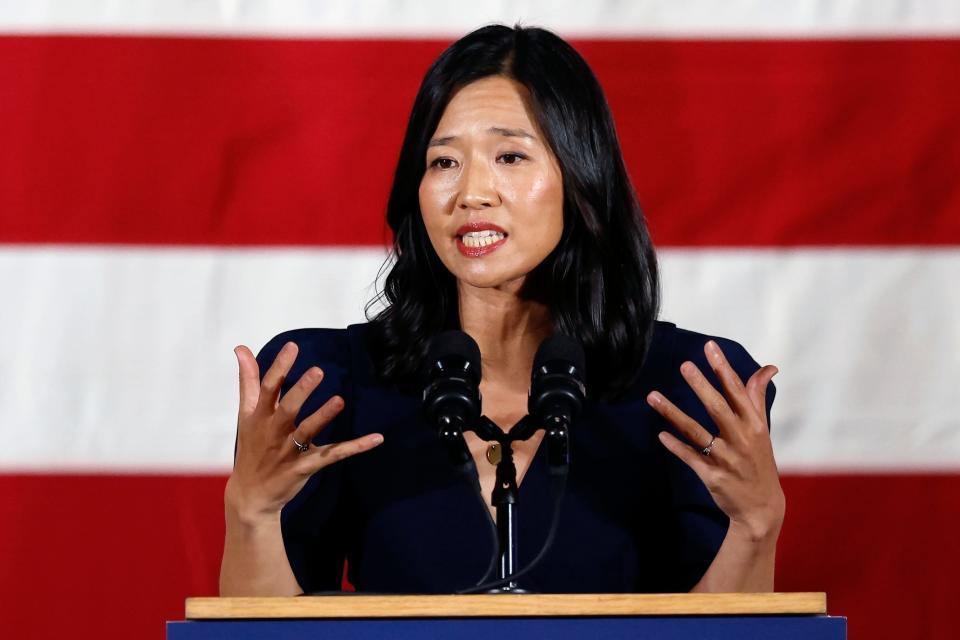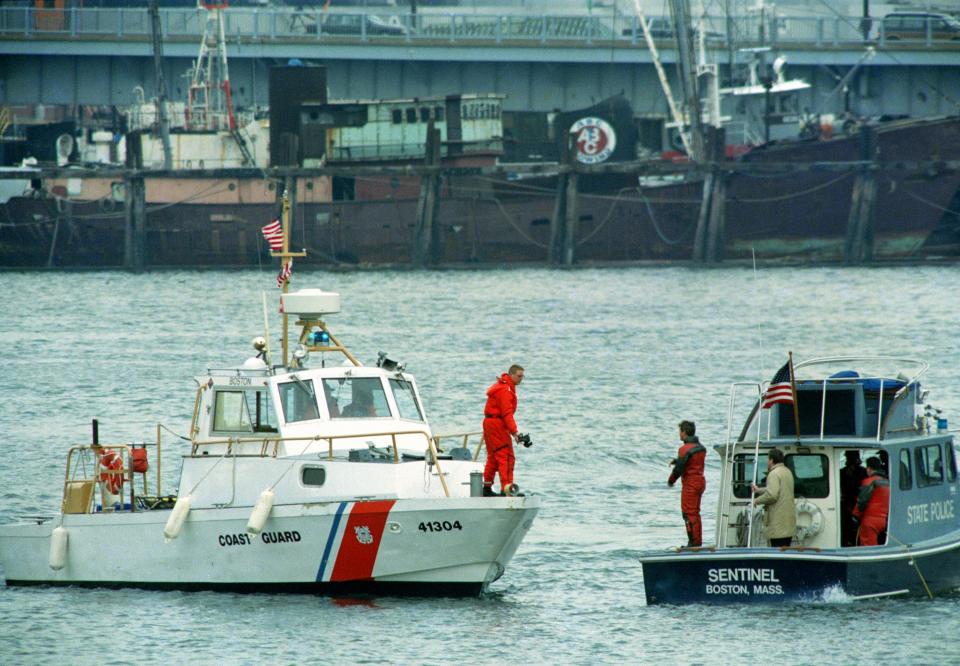A racist accusation, a botched investigation. Then, decades later, an apology in Boston.
The mayor of Boston formally apologized to two Black men who were wrongfully accused of murdering a pregnant white woman and her unborn child in 1989 – a notorious murder case that sowed decades of distrust between the Boston Police Department and the city's Black community.
"I am so sorry for what you endured," Michelle Wu said in an apology addressed to Willie Bennett and Alan Swanson, at a news conference on Wednesday. "I am so sorry for the pain that you have carried for so many years. What was done to you was unjust, unfair, racist and wrong."
In 1989, Swanson and Bennett were named as suspects in the death of Carol Stuart, whose husband, Charles Stuart, plotted her killing and then accused an unidentified Black man for the murder, sparking what the mayor called a "systemic campaign targeting Black men" based on "a false, racist claim."
Michael Cox, the Boston police commissioner, apologized on behalf of the police department for "the poor investigation, overzealous behavior and, more likely, unconstitutional behavior."
Flanking the speakers were Swanson and members of Bennett's family. The mayor handed them formal apology letters and said the gesture was "just the beginning of a much longer journey of accountability and action."
Joey Bennett, Willie Bennett's nephew, accepted Wu's apology on behalf of his uncle, who did not attend the event.
"In accepting this apology I wish to emphasize the importance of strength, resiliency, empathy and growth – it's through these principles that we change the narrative so the world can be informed of what transpired 34 years ago and begin the process of healing from our trauma," he said.

The Carol Stuart case, false accusations amid aggressive police crackdown
Carol Stuart was shot and killed in October of 1989. Her baby was delivered but died died some weeks later. Charles Stuart, who was shot in the chest, said the assailant was an unidentified Black man who'd attempted a carjacking.
The false story led the Boston Police Department to begin an aggressive crackdown centered in one of the city's traditionally Black neighborhoods.
In the months that followed, officers arrested Swanson, who was soon ruled out as a suspect, and later took Bennett into custody.
Meantime, Stuart's story began to crumble: His brother, Matthew, confessed to helping to hide the gun used to shoot Carol Stuart, according to the Associated Press. In January 1990, Stuart died by suicide. It was later revealed that he orchestrated Carol Stuart's killing for insurance money.
Bennett unsuccessfully sued the Boston Police Department, claiming that officers violated his civil rights by coercing potential witnesses against him, the outlet reported. In 1995, his family won a $12,500 settlement with the city.
The murder and false accusations were recently the subject of an HBO documentary series titled "Murder in Boston: Roots, Rampage & Reckoning," which reinvigorated national interest in the case that fractured relationships across the city on racial lines.

'We owe them an opportunity to move forward'
At the news conference on Wednesday, Leslie Harris, a judge who had formerly represented Swanson, said he “never expected this day.”
Harris recounted Swanson’s time in jail, where he had to be separated from the general population so he wouldn't be hurt or killed. People spat in his food and beat on his cell door. Harris himself received death threats and, at times, needed police protection.
In more than three decades since they were cleared from the case, Swanson, Bennett and their families have not been able to escape its shadow, Harris said.
“I don’t know how you undo that,” he said, adding that the formal apologies from city officials were the first steps in restorative justice. He called upon officials to pay Bennett and Swanson a proper sum for what they've have to endure.
"Alan Swanson was one of my brightest clients ... this was an intelligent young man, but he never got a chance in life,” Harris said. “We owe them an opportunity to move forward. We owe them an opportunity for the next generation not to have to suffer what they suffered.”
Contributing: The Associated Press
This article originally appeared on USA TODAY: Boston mayor Michelle Wu apologizes to Wille Bennett, Alan Swanson

